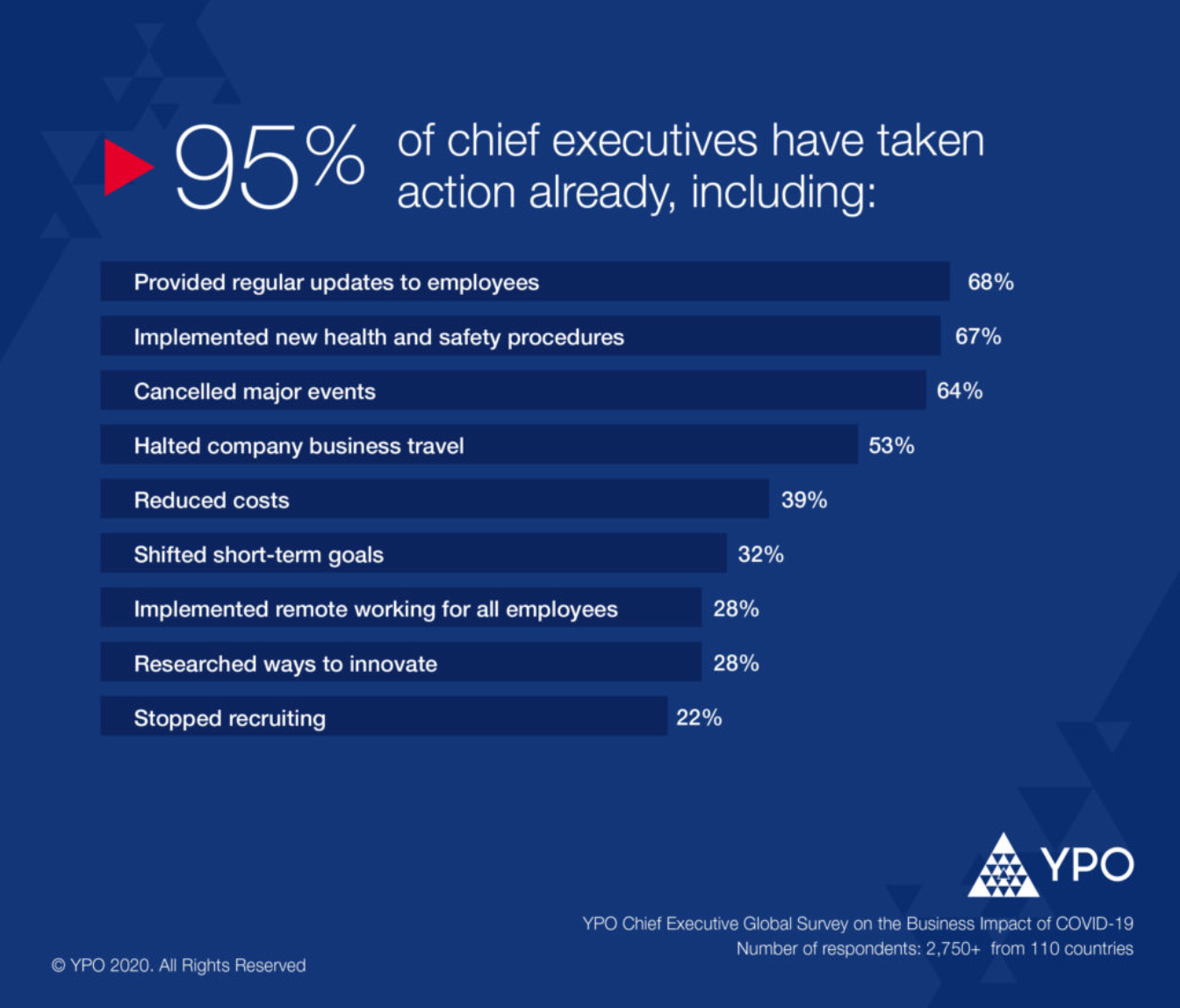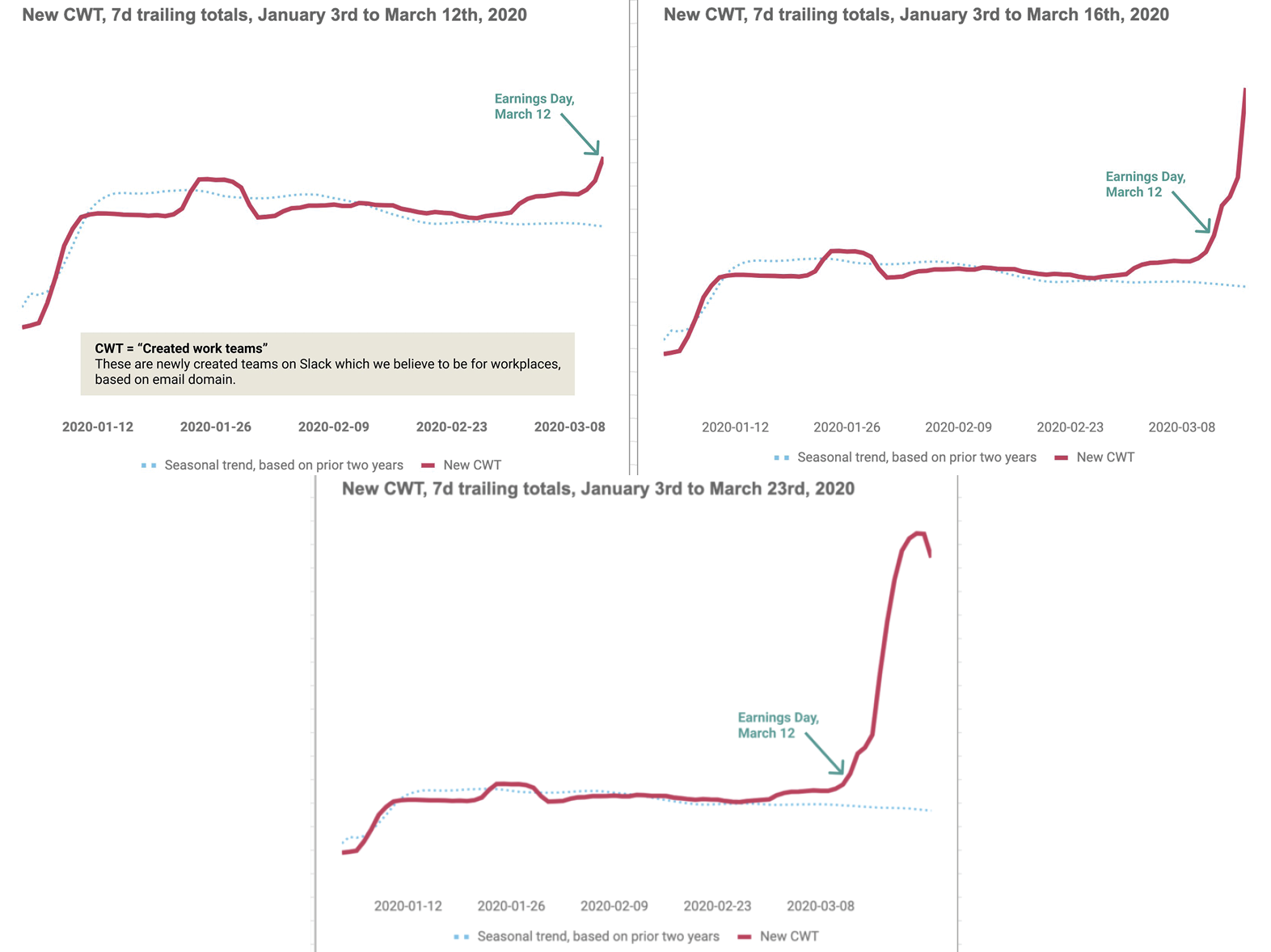As CoVID-19 looms and the economic world stalls, business leaders are looking to digital integration as the solution. The vast scope of digital integration once thought to be years away is a clear sign of the digital revolution that is shaping the future of business.
This article will take about 4 minutes to read
One-third of the global population is now on COVID-19 lockdown. As a result, company executives are finding themselves in the unprecedented situation of dealing with a global shutdown. For many CEOs, this means taking losses in order to put the safety of their workers, their customers, and their partners first.

A recent survey conducted by YPO focused on the different ways in which CEOs and their companies are reacting to the pandemic. With industry events and business travel taking a major hit, business growth and expansion have slowed to a crawl.
Knowing this, it’s hardly a surprise that 35% of deals posted on Opportunity Network in the past week have been directly related to COVID-19. In fact, one-fifth of all deals were for the demand or supply of masks or gloves. Members are increasingly turning to the platform as an agile tool to connect with alternative solutions.
But in every bad situation, there is an opportunity for growth. Crises push us to find new ways of doing things, and COVID-19 will be no different.
The Future of Digital Transformation is Now
In these turbulent times, businesses worldwide have had to adapt quickly to keep their workforce productive while working from home. Firms that may have previously dismissed the need for digital integration are now looking for fast solutions.
A quick look at search trends for “video conference” in the past 90 days, shows just that. A clear influence of COVID-19 in search behaviors worldwide.
Google Trends Search: Video Conference

Even as the stock market crash reached new depths, the share price for video conference app Zoom has jumped 50% and is now valued at $29 billion (£23.5 billion). (The Independent)
Companies like Slack are feeling the shift as well. Stewart Butterfield, CEO of Slack, took to Twitter to talk about the unprecedented growth that his company is seeing.

Having almost doubled its quarterly customer acquisition rate in only the first half of Q1, Slack has essentially hit fast forward on its long-term growth plan.
“It felt like the shift from inboxes to channels which we believed to be inevitable over 5-7 years just got fast-forwarded by 18 months,” shared Butterfield.
The shift that digital companies are feeling today will be felt by the larger society in the months to come. Even after the threat of the virus has subsided, its effects on the fabric of social and business interaction will persist.
CEOs will still meet to do business. As Henry Grabar of Slate magazine rightly points out, “no decentralizing technology so far—not telegrams, not telephones, not television, and not the internet—has dented that human desire to shake hands.”
But how we determine the need for an in-person meeting will change. After being forced to learn new ways to meet, discuss and create online, we won’t revert entirely to our old ways.

Looking Towards the Future
Business leaders are facing the challenge of not only finding ways to fix immediate problems, such as the need for masks or work-from-home tech, but also building a strategy for the coming months.
An almost impossible task, given all the uncertainty. The future is “a cone of possibilities”, as Stewart Butterfield puts it: “The further out you get, the harder it is to predict and the wider the cone gets. Increased risk, volatility, uncertainty push it wider still. Our job at this moment is to help others predict our future.”
For many businesses, this means some tough times now, but huge potential in the future. Jasper Camacho, Managing Director at Marius International and Opportunity Network Member, is facing uncertainty with hope.
“It’s hard to say [what impact this health crisis will have]. On one hand, we feel the direct consequences of the government shutdowns. On the other hand, we feel that the volatility in the market will create opportunities.”
History has shown this to be true. A number of major global companies found their start during times of economic upheaval. Crises create sudden changes in consumer needs and desires. In many cases, this translates directly into new markets and new business prospects. Companies that are alert to these changes have the opportunity to be at the forefront of new product offerings.
“Find opportunities. Use this crisis to find opportunities to innovate or provide unique value. Negotiate better leases, hire available talent and increase market share through superior performance.” Member, YPO & Opportunity Network.




